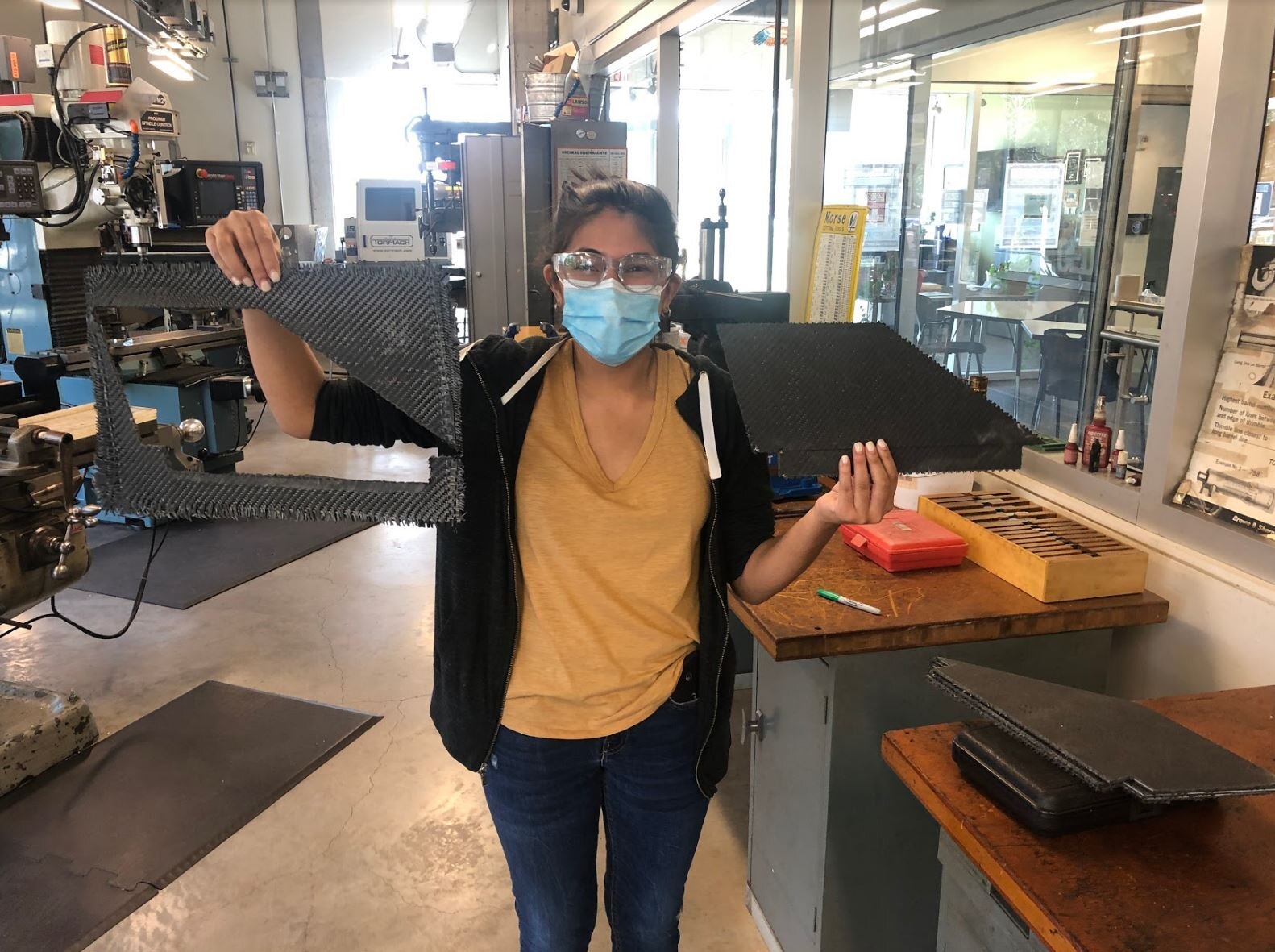
ATHENA
2021 Spaceport America Cup Competition Rocket
Overview
Athena was Rice Eclipse’s first rocket designed to reach 30,000 feet, and was the first student-produced supersonic vehicle to come out of Rice University.
Athena was designed to compete in the 30,000 foot Commerical-off-the-Shelf division of the 2021 Spaceport America Cup. Due to the event’s cancellation, the team launched it at the FAR 1030 competition in June, 2021.
Athena reached a top spead of mach 1.7 and achieved an apogee of 25,502 feet. Unfortunately, a component failure in the recovery system led to a ballistic return. This led to the decision to produce an improved 30 COTS rocket to launch in the 2022 Spaceport America Cup, which became Minerva.
As part of our long term goal of competing in the 30,000 foot Student Research and Design division of Spaceport America with our own hybrid engine, Athena holds a significant place in Eclipse’s development as our first vehicle in altitude class. In addition, it featured a myriad of improvements over our previous competition rocket, Noctua III, including the team’s first boat tail and our thinnest and lightest fins yet, which were fabricated in-house from aramid honeycomb, carbon fiber cloth, and fiberglass.
Athena also carried an 8.8lb 3U Cubesat form factor payload to its apogee. The rocket was built with an RF transparent section to allow an onboard GPS unit to transmit the vehicle’s location back to mission control during and after the flight. In another first for the team, we rolled our custom fiberglass tube from fiberglass cloth to serve as this section of the airframe, with the rest being RF opaque carbon fiber. This gave the team both live altitude data and GPS coordinates of the rocket’s landing site that were accurate to within five feet.
Athena was completely designed and fabricated within the 2020-2021 academic year and stands as a testament to the growth of the team’s institutional knowledge and engineering maturity.
Check out this article that the Rice Mechanical Engineering department wrote about this project titled, “How Rice Eclipse built a competition rocket during a pandemic,” featuring a spotlight of Kimberly Rodriguez, the current Aerodynamics Team and Athena Project Lead.


